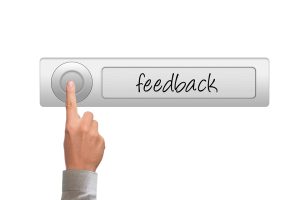Maximizing the Power of Triggered Emails for Better Engagement
Email marketing is a powerful tool for businesses looking to engage with customers and generate more revenue. But how can you take your email campaigns to the next level? Enter triggered emails, a type of email that’s sent automatically based on customer behavior or actions. By using triggered emails, you can maximize engagement with your audience and guide them towards a purchase. In this article, we’ll explore the benefits of triggered emails and provide tips for using them effectively.
What are Triggered Emails?
Triggered emails, also known as behavioral emails or event-triggered emails, are emails that are sent automatically based on specific customer actions or behaviors. These emails are triggered by a predefined set of conditions, such as a customer abandoning their cart or signing up for a newsletter. They can be used to deliver a variety of messages, from welcome emails to abandoned cart reminders and post-purchase follow-ups.
Benefits of Triggered Emails
One of the primary benefits of triggered emails is that they are highly personalized and targeted. By sending emails that are relevant to specific customer behavior, you’re more likely to capture their attention and drive engagement. Additionally, triggered emails have higher open and click-through rates than traditional email campaigns. It’s estimated that triggered emails can generate up to 624% more conversions than regular emails.
Tips for Using Triggered Emails Effectively
To maximize the power of triggered emails, follow these tips:
1. Segment your audience: Start by segmenting your email list to ensure that triggered emails are being sent to the right people. Segment your audience based on their behavior, demographic, and buying habits.
2. Use a compelling subject line: Use a catchy and compelling subject line to grab the attention of your audience.
3. Provide value: Make sure that your triggered emails are providing value to your customers. Whether it’s a special offer, exclusive content, or helpful advice, make sure that your emails are relevant and valuable.
4. Use visuals: Use visuals, such as images or videos, to help illustrate your message and make your emails more engaging.
5. Test and optimize: Test and optimize your triggered emails to ensure that they are driving the desired results. Experiment with different subject lines, messaging, and visuals to see what works best for your audience.
Conclusion
Triggered emails are a powerful tool for businesses looking to engage with customers and drive conversions. By using personalized and targeted emails, you can capture the attention of your audience and guide them towards a purchase. Remember to segment your audience, provide value, and test and optimize your emails to ensure that you’re maximizing the power of triggered emails.
FAQs
1. What is the difference between a triggered email and a regular email campaign?
Answer: A triggered email is sent automatically based on specific customer behavior, while a regular email campaign is sent to a wider audience with a general message.
2. What are some examples of triggered emails?
Answer: Some examples of triggered emails include welcome emails, abandoned cart reminders, and post-purchase follow-ups.
3. How can I segment my email list?
Answer: You can segment your email list based on behavior, demographic, and buying habits.
4. How do I test and optimize my triggered emails?
Answer: Experiment with different subject lines, messaging, and visuals to see what works best for your audience.
5. How can I ensure that my triggered emails are providing value to my customers?
Answer: Make sure that your emails are relevant and valuable, such as offering a special offer, exclusive content, or helpful advice.






